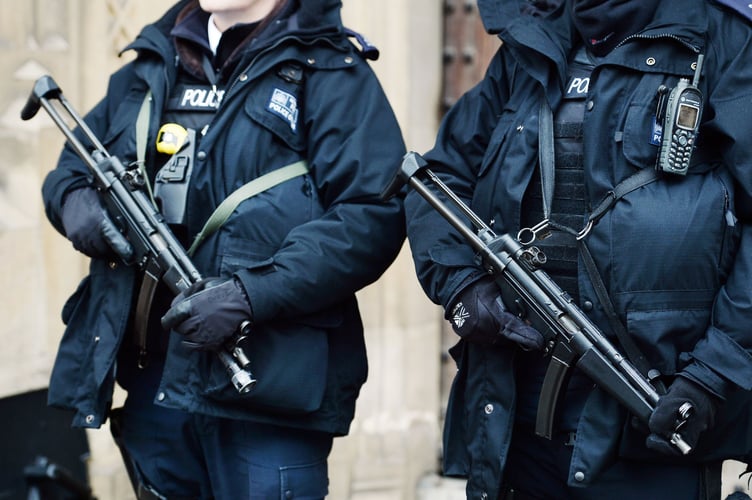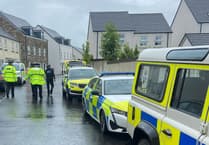While police officers do not routinely carry guns in the UK, forces may use specially-trained firearms officers in response to some crimes.
The Gun Control Network said the low rates of police firearm discharge are "very welcome".
Figures from the Home Office show Devon and Cornwall Police deployed these officers in 257 operations in the year to March, up from 224 the year before.
Officers have been called to 1,302 incidents in the past five years.
There was a 4% drop in the number of operations across England and Wales – from 18,400 in 2022-23 to 17,589 last year.
The Metropolitan Police and West Midlands Police – the two largest forces in the country – were responsible for the greatest number of operations, carrying out 19% and 12% of them respectively.
Dr Peter Squires, of the GCN, said the fall in the number of deployments "reflects a welcome fall in the frequency of incidents requiring police armed attendance".
He added: "Following the police shooting of Chris Kaba in September 2022 and the Crown Prosecution Service's decision to charge the officer responsible, there have been rumblings of disquiet amongst armed officers and a number have resigned their armed authority, further accelerating the decline in numbers of armed officers.
"The extremely low rates of police firearm discharge are very welcome, as are the underlying low rates of gun-enabled crime, necessitating police armed deployments."
Dr Squires said falling rates support the argument that containing the proliferation of firearms, there is less need for armed policing.
The figures show there were 138 police officers trained to use firearms in Devon and Cornwall a fall on the 160 a year earlier.
Despite this, firearms were "intentionally discharged" at a person just twice in 2023-24, compared to 10 times a year earlier.
The Home Office notes it is the sixth consecutive year that the number of operationally deployable firearms officers has fallen, with 5,861 available across England and Wales. This was down from a peak of 6,621 in 2019.




